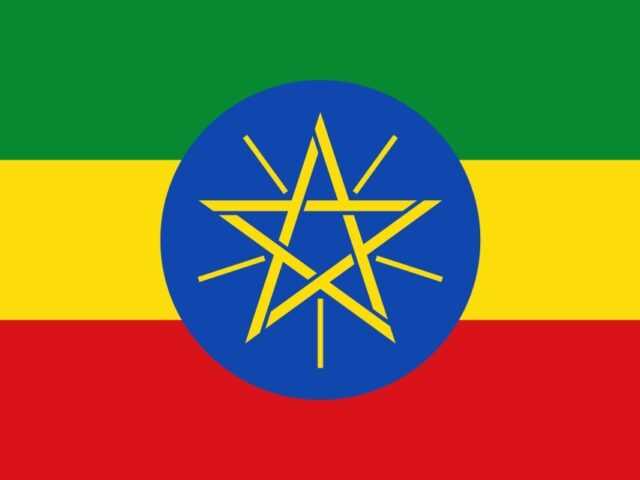Share your coffee stories with us by writing to info@comunicaffe.com.
ADDIS ABABA, Ethiopia – A bill, which will paralyse the Ethiopia Commodity Exchange (ECX) in the coffee export value chain, was finalised last week and sent to Ministry of Agriculture & Natural Resources and the Office of the Attorney General for some improvements and additions.
The legal frameworks that are going to bring major reforms in the coffee market value chain were drafted by the Ethiopian Coffee & Tea Development & Marketing Authority. The new bill allows farmers to sell coffee before it reaches the warehouses of ECX.
The Authority, head by Sani Redi, has been working on the amendment of the proclamation, directive, and regulation over the past eight months following the demand from the people who seek the reform, according to Kahsu Berhanu, representative of legal directorate at the Authority.
The consecutive meetings of the Prime Minister with coffee exporters and findings of research done by different stakeholders forced the Authority to reform the sector. The proclamation, which is currently under reform, was first issued in 2008 and entitled “Coffee Quality Control and Marketing Proclamation.”
The National Export Coordination Committee identified the major bottleneck of the coffee market and pointed out 11 major challenges of the coffee value chain. The committee also suggested the solutions.
Some of the major findings of the committee include fewer incentives for the coffee growers and exporters, finance constraint, extended value chain, widespread illegal trading and bottlenecks regarding the former legal frameworks.
These challenges had been affecting the coffee business which is the backbone of the country. Ethiopia is the largest producer of coffee in Sub-Saharan Africa and is the fifth largest coffee producing country in the world, contributing about seven percent to 10pc of total world coffee production.
“Because of illegal trading we were forced to shut down our coffee processing plant for the past three years,” said a coffee processor and exporter who wish to remain anonymous.
One of the new things that will be included in the new proclamation is reducing the value chain, the process which the coffee has to go through before being ready for export. The bill will reduce the role of the ECX in the value chain as the coffee can be sold out during consignment within three days.
The previous proclamation prohibits buying or selling, by any person in the coffee trading business, coffee outside the ECX or a transaction centre established by the Ministry of Trade or the appropriate regional body.
“This will be a game changer and relief for the coffee growers and exporters,” said this exporter.
The introduction of the bill will help to trace the source of the coffee, according to the Authority. Exporters claim that coffee was deliberately and un-deliberately mixed at the warehouses of the ECX which finally raised concerns on the traceability of the coffees.
“Previously, about 40pc of the revenue was pocketed in the accounts of the middlemen while the farmers should have benefited,” said Kahsu. “Also, the system was highly vulnerable to maladministration and illegal acts.”
Earlier this year, the Anti-Corruption Commission charged two individuals working at the Authority, for allegedly selling coffee to 56 illegal coffee exporters. According to the prosecution which was filed by the Commission, the act has deprived the country of over 75.7 million dollars, which is a quarter of the country’s export earnings from coffee.
In addition to trading coffee during the consignment, the coffee can be exported while they are at the processing plants where it gets washed.
All these transactions have been going through the ECX which was established nine years ago with the primary aim of creating a new marketplace that serves all market actors, from farmers to traders to processors to exporters and consumers. Coffee had been the primary trading agricultural product which has gone through this processes at the ECX.
Also, the companies which add values to the export of coffee by roasting and grinding coffee will be allowed to export their products using standard export coffee. This mainly addresses the claim raised by the many companies engaged in exporting processed coffee.
Abiy Demise, the export manager of Abyssinia Coffee, told Fortune a few weeks ago that they are facing challenges in getting quality and standard quality coffee as the government does not allow processing export standard coffee.
One these draft legal frameworks the authority had three round discussions with the stakeholders to get views from the public and considered the valid once, according to Kahsu. The discussions took place in eight regional towns, which are known as the major coffee growing areas.
“ECX will continue handling the coffee which is going to be sold not in bulk,” said Kahsay.
But Netsanet Tesfaye, corporate communications manager at ECX, told Fortune that he is informed about the recommendations made to improve the value chain of the coffee, but he claims that he is not entirely informed abut the draft proclamation amendment, which excludes the ECX from the export market value chain of coffee.
In addition to that, the change includes increases in the fines on those who are found engaging in illegal coffee trading, as the industry players claim that the sector is highly affected by hit and run business individuals.
Fasika Tadesse















